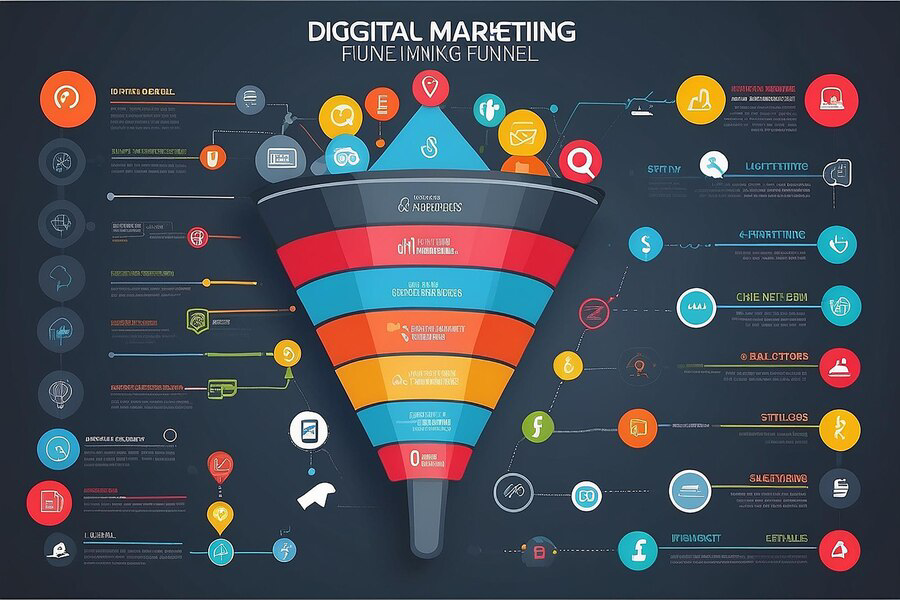222 Capitol Street, Suite 522
Charleston, WV 25301

Why Mobile Marketing Is Essential for E-commerce Brands
In today's digital landscape, where smartphones have become indispensable companions, mobile marketing stands as a cornerstone for e-commerce success. As consumers increasingly turn to their mobile devices for shopping, communication, and entertainment, e-commerce brands must adapt their strategies to meet this growing trend. Mobile marketing offers a direct and personalized way to engage with potential customers, leveraging the ubiquity of smartphones to reach audiences anywhere and at any time. Furthermore, the integration of mobile technologies allows e-commerce brands to enhance user experience through tailored content, intuitive interfaces, and seamless transactions. By optimizing for mobile, businesses not only broaden their reach but also capitalize on the immediacy and convenience that mobile platforms offer. In essence, embracing mobile marketing isn't just beneficial—it's imperative for e-commerce brands aiming to stay competitive and relevant in today's dynamic market environment.
The Rise of Mobile Commerce
In the past decade, the landscape of commerce has undergone a dramatic transformation, largely propelled by advancements in mobile technology. Mobile devices, once primarily used for communication, have evolved into powerful tools that drive significant portions of global commerce. This shift has revolutionized how consumers discover, research, and purchase products, making mobile commerce a cornerstone of modern retail strategies.
Mobile Shopping Trends
The journey of mobile commerce began with the widespread adoption of smartphones and tablets. Today, consumers increasingly prefer the convenience of shopping on their mobile devices. According to recent studies, a significant percentage of online traffic and transactions originate from smartphones and tablets, underscoring the importance of mobile-friendly strategies for e-commerce businesses.
Impact on Consumer Behavior
Mobile commerce has reshaped consumer behavior in profound ways. Customers now expect seamless experiences across all devices, from browsing product catalogs to completing purchases. This trend has prompted e-commerce brands to optimize their websites and apps for mobile users, ensuring fast load times, intuitive navigation, and secure payment options.
Mobile-Optimized Websites
The advent of responsive web design has enabled e-commerce businesses to create mobile-optimized websites that deliver a consistent and engaging user experience. These websites adapt seamlessly to different screen sizes and resolutions, enhancing usability and reducing bounce rates. Implementing mobile-first design principles has become imperative for brands looking to capitalize on the growing mobile market.
Rise of Mobile Apps
Mobile apps have emerged as a powerful tool for driving engagement and loyalty among e-commerce customers. Brands leverage apps to send personalized notifications, offer exclusive discounts, and streamline the checkout process. The convenience of shopping directly through an app enhances user satisfaction and encourages repeat purchases, making apps a valuable asset for e-commerce growth strategies.
Mobile Payment Innovations
The evolution of mobile commerce has coincided with advancements in payment technologies. Mobile wallets, such as Apple Pay and Google Wallet, have simplified the checkout process by enabling secure and convenient transactions via smartphones. These innovations cater to the preferences of modern consumers who prioritize speed and security when making purchases online.

Future Trends in Mobile Marketing
Mobile marketing continues to evolve at a rapid pace, driven by technological advancements and shifting consumer behaviors. As e-commerce brands strive to stay ahead in a competitive landscape, understanding and embracing emerging trends in mobile marketing is crucial. From AI-powered personalization to immersive mobile experiences, the future promises exciting opportunities for innovation and growth.
Artificial Intelligence and Machine Learning
Artificial intelligence (AI) and machine learning (ML) are poised to revolutionize mobile marketing strategies. AI-powered algorithms can analyze vast amounts of data to personalize user experiences, predict consumer behavior, and optimize marketing campaigns in real-time. Chatbots and virtual assistants powered by AI enhance customer support and engagement, offering personalized recommendations and resolving queries efficiently.
Augmented Reality (AR) Experiences
Augmented reality (AR) is set to transform mobile shopping experiences by allowing consumers to visualize products in their physical environment before making a purchase. AR technology enables interactive product demonstrations, virtual try-ons for fashion items, and immersive brand storytelling. E-commerce brands can leverage AR to enhance engagement, reduce return rates, and differentiate themselves in a crowded marketplace.
Voice Search Optimization
With the rise of voice-activated devices like smart speakers and virtual assistants, optimizing for voice search is becoming increasingly important in mobile marketing strategies. E-commerce brands must adapt their SEO tactics to account for natural language queries and long-tail keywords used in voice searches. Voice commerce (v-commerce) is also gaining traction, enabling consumers to make purchases simply by using voice commands.
5G Technology
The rollout of 5G technology promises to revolutionize mobile connectivity and speed, opening up new possibilities for mobile marketing. Faster download speeds and reduced latency will enhance the delivery of multimedia content, live streaming, and immersive AR/VR experiences on mobile devices. E-commerce brands can leverage 5G to deliver richer, more engaging content and seamless shopping experiences that rival traditional desktop interactions.
Personalized Mobile Experiences
Consumers increasingly expect personalized experiences across all touchpoints, and mobile devices are no exception.
E-commerce brands can harness data analytics and AI to deliver hyper-targeted content, personalized recommendations, and tailored promotions based on user behavior, preferences, and purchase history. Personalization fosters customer loyalty, increases conversion rates, and enhances overall user satisfaction in the mobile shopping journey.
Mobile-Friendly Website Design
In today's digital landscape, optimizing your website for mobile devices is no longer optional—it's essential. With a significant portion of internet traffic coming from smartphones and tablets, ensuring a seamless mobile experience can significantly impact user engagement, conversion rates, and overall business success.
- Responsive Design: Implementing responsive design ensures that your website adapts fluidly to different screen sizes and orientations, providing a consistent user experience across all devices.
- Fast Loading Times: Mobile users expect speed. Optimizing images, minimizing scripts, and leveraging browser caching can dramatically improve load times, reducing bounce rates and improving SEO.
- Intuitive Navigation: Simplify navigation menus and call-to-action buttons to make it easy for users to find what they're looking for quickly and efficiently.
- Thumb-Friendly Interactions: Designing with mobile-specific gestures in mind (such as swipe, pinch, and tap) enhances usability and makes navigation more intuitive.
Conclusion
Mobile marketing stands as a cornerstone for success in today's e-commerce landscape. As consumers increasingly turn to their smartphones for shopping, communication, and entertainment, e-commerce brands cannot afford to overlook the power of mobile platforms. By leveraging targeted mobile ads, optimizing websites for mobile devices, and utilizing apps to enhance customer experience, businesses can tap into a vast pool of potential customers. The adaptability and immediacy of mobile marketing allow brands to engage with consumers in real-time, fostering brand loyalty and driving sales.
For expert guidance on integrating mobile marketing strategies into your e-commerce business, contact Ideation Digital Marketing today. Located in Charleston, WV, our team specializes in crafting customized digital marketing solutions that maximize your brand's reach and impact. Call us at (304) 814-2445 to schedule a consultation or visit our website to learn more about how we can elevate your e-commerce presence through innovative mobile marketing tactics. Let's collaborate to ensure your brand thrives in the mobile-first era.

Main Office
222 Capitol Street, Suite 522
Charleston, WV 25301
other offices
48 1/2 Second Ave, Williamson, WV 25661
20 Clinch Mountain Ave, Lebanon, VA 24266,
Contact
DIGITAL MARKETING SERVICES
All Rights Reserved | Ideation Digital
Private Policy
All Rights Reserved | Ideation Digital











